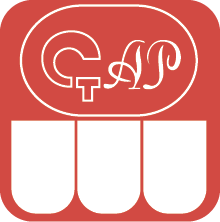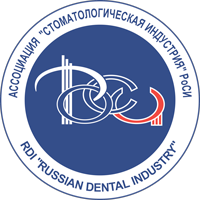DOI:
10.37988/1811-153X_2024_1_66Elimination of critical jawbone defects based on the use of xenogeneic collagen membranes and amorphous hydroxyapatite in an experiment
Downloads
Abstract
Elimination of jaw defects of various etiologies remains a pressing issue for many years. The aim of the work was to analyze osteogenesis in the area of critical defects in the jaws of laboratory animals using various combinations of xenogeneic dental materials Matriflex (Biopharmaholding, Moscow, Russia) in the form of hydroxyapatite crumbs and two types of collagen membranes.Materials and methods.
A study was conducted on 6 Chinchilla rabbits. During the experiment, critical defects were created intraoperatively in all animals in the lower jaw area with their subsequent filling with osteoplastic materials in 3 combinations (hydroxyapatite, hydroxyapatite and collagen membrane no. 1, hydroxyapatite and collagen membrane no. 2), as well as one defect each without filling with material as a control area for natural regeneration. In the postoperative period, local edema and hyperemia were count according to the scoring system. The observation period was 3 months, followed by removal of animals from the experiment and collection of biomaterial for microfocus computed tomography (CT) and histological examination.
Results.
According to the control postoperative examinations of animals, no statistically significant differences were obtained in the severity of edema and tissue hyperemia in the area of defects treated with different methods. According to the results of microfocus CT, the healing of defects from 80 to 100% was determined in the area of application of hydroxyapatite and collagen membranes, especially compared to defects without filling with materials. Histological examination confirmed the CT results — regeneration was more pronounced in the area of implantation of materials.
Conclusion.
The use of xenogeneic materials Matriflex in the form of membranes and hydroxyapatite makes it possible to almost completely eliminate critical jaw defects in experiments and can be recommended for clinical practice.
Key words:
osteoplastic material, defect, jaw, hydroxyapatite, collagen, experimentFor Citation
[1]
Diachkova E.Yu., Ershov B.P., Demyanenko I.A., Kalmykova N.V., Fayzullin A.L., Marakhovskaya A.A., Petukhova M.M. Elimination of critical jawbone defects based on the use of xenogeneic collagen membranes and amorphous hydroxyapatite in an experiment. Clinical Dentistry (Russia). 2024; 27 (1): 66—74. DOI: 10.37988/1811-153X_2024_1_66
References
- Zhao R., Yang R., Cooper P.R., Khurshid Z., Shavandi A., Ratnayake J. Bone grafts and substitutes in dentistry: A review of current trends and developments. Molecules. 2021; 26 (10): 3007. PMID: 34070157
- Fukuba S., Okada M., Nohara K., Iwata T. Alloplastic bone substitutes for periodontal and bone regeneration in dentistry: Current status and prospects. Materials (Basel). 2021; 14 (5): 1096. PMID: 33652888
- Jeng M.D., Chiang C.P. Autogenous bone grafts and titanium mesh-guided alveolar ridge augmentation for dental implantation. J Dent Sci. 2020; 15 (3): 243—248. PMID: 32952880
- de Azambuja Carvalho P.H., Dos Santos Trento G., Moura L.B., Cunha G., Gabrielli M.A.C., Pereira-Filho V.A. Horizontal ridge augmentation using xenogenous bone graft — systematic review. Oral Maxillofac Surg. 2019; 23 (3): 271—279. PMID: 31089897
- Bucchi C., Del Fabbro M., Arias A., Fuentes R., Mendes J.M., Ordonneau M., Orti V., Manzanares-Céspedes M.C. Multicenter study of patients' preferences and concerns regarding the origin of bone grafts utilized in dentistry. Patient Prefer Adherence. 2019; 13: 179—185. PMID: 30697038
- Reshetnikov A.P., Trezubov V.N., Rozov R.A., Apresyan S.V., Gurevich K.G., Urakov A.L., Gavryushova L.V., Kopylov M.V. Peculiarities of biomaterials transplantation and implantation of titanium implants in atrophy of hard and soft tissues of the jaws. Clinical Dentistry (Russia). 2023; 2: 132—142 (In Russian). eLIBRARY ID: 54167537
- Lie S.A.N., Claessen R.M.M.A., Leung C.A.W., Merten H.A., Kessler P.A.W.H. Non-grafted versus grafted sinus lift procedures for implantation in the atrophic maxilla: a systematic review and meta-analysis of randomized controlled trials. Int J Oral Maxillofac Surg. 2022; 51 (1): 122—132. PMID: 33849784
- Velichko E.V., Chen Yu.O., Vasil'ev Yu.L. Evaluation of the effectiveness of the use of collagen cones in the post-extraction socket preservation in patients on temporary antithrombotic therapy. Clinical Dentistry (Russia). 2021; 3: 91—96 (In Russian). eLIBRARY ID: 46657561
- Lett J.A., Sagadevan S., Fatimah I., Hoque M.E., Lokanathan Y., Léonard E., Alshahateet S.F., Schirhagl R., Oh W.C. Recent advances in natural polymer-based hydroxyapatite scaffolds: Properties and applications. European Polymer Journal. 2021; 148, 110360. DOI: 10.1016/j.eurpolymj.2021.110360
- Tebyanian H., Norahan M.H., Eyni H., Movahedin M., Mortazavi S.J., Karami A., Nourani M.R., Baheiraei N. Effects of collagen/β-tricalcium phosphate bone graft to regenerate bone in critically sized rabbit calvarial defects. J Appl Biomater Funct Mater. 2019; 17 (1): 2280800018820490. PMID: 30832532
- Diachkova E., Tarasenko S., Morozova E., Repin I., Li A., Al-Shrani H., Bokereva S., Demyanenko I., Gevorkov G. Xenogenic collagen gel and laser light in prophylaxis and management of periimplantitis: a pilot study. Actual Problems in Dentistry. 2023; 1: 80—86 (In Russian). eLIBRARY ID: 53765749
- Diachkova E., Corbella S., Taschieri S., Tarasenko S. Nonsurgical treatment of peri-implantitis: Case series. Dent J (Basel). 2020; 8 (3): 78. PMID: 32727061
- Sobczak-Kupiec A., Wzorek Z. The influence of calcination parameters on free calcium oxide content in natural hydroxyapatite. Ceramics International. 2012; 38 (1): 641—647. DOI: 10.1016/j.ceramint.2011.06.065
- Bakht S.M., Pardo A., Gómez-Florit M., Reis R.L., Domingues R.M.A., Gomes M.E. Engineering next-generation bioinks with nanoparticles: moving from reinforcement fillers to multifunctional nanoelements. J Mater Chem B. 2021; 9 (25): 5025—5038. PMID: 34014245
- Aprile P., Letourneur D., Simon-Yarza T. Membranes for guided bone regeneration: A road from bench to bedside. Adv Healthc Mater. 2020; 9 (19): e2000707. PMID: 32864879
- Akbarov A.N., Ziyadullaeva N.S., Khabilov B.N. Use of osteoplastic materials for recovery cavity defects of the maxillofacial bones. Stomatologiya. 2019; 2 (75): 69—74 (In Russian).
- Bornert F., Herber V., Sandgren R., Witek L., Coelho P.G., Pippenger B.E., Shahdad S. Comparative barrier membrane degradation over time: Pericardium versus dermal membranes. Clin Exp Dent Res. 2021; 7 (5): 711—718. PMID: 33949796
- Rider P., Kačarević Ž.P., Elad A., Tadic D., Rothamel D., Sauer G., Bornert F., Windisch P., Hangyási D.B., Molnar B., Bortel E., Hesse B., Witte F. Biodegradable magnesium barrier membrane used for guided bone regeneration in dental surgery. Bioact Mater. 2022; 14: 152—168. PMID: 35310351
- Shukparov A.B., Shomurodov K.E., Mirkhusanova R.S. Principles of directed bone regeneration: critical preoperative factors and success criteria. Integrative dentistry and maxillofacial surgery. 2022; 1: 10—13 (In Russian). eLIBRARY ID: 49498648
- Li Y., Chen S.K., Li L., Qin L., Wang X.L., Lai Y.X. Bone defect animal models for testing efficacy of bone substitute biomaterials. J Orthop Translat. 2015; 3 (3): 95—104. PMID: 30035046
- Johnson T.B., Siderits B., Nye S., Jeong Y.H., Han S.H., Rhyu I.C., Han J.S., Deguchi T., Beck F.M., Kim D.G. Effect of guided bone regeneration on bone quality surrounding dental implants. J Biomech. 2018; 80: 166—170. PMID: 30170838
- Moiseeva N.S., Kharitonov D.Yu., Kharitonov I.D., Stepanov I.V., Podoprigora A.V. Clinical and laboratory evaluation of morphological parameters in osteoplastic materials used in alveolar bone augmentation. Journal of New Medical Technologies, EEdition. 2021; 4: 18—23 (In Russian). eLIBRARY ID: 46518708
Downloads
Received
September 7, 2023
Accepted
January 17, 2024
Published on
March 21, 2024









